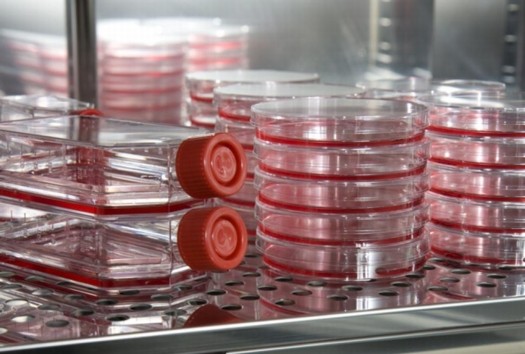NOTE: This report is over 3 years old and as of today, is being covered up by the Allopathic (Pathological) Medical Community. (J.B.)
 Scientists found that healthy cells damaged by chemotherapy secreted more of a protein called WNT16B, which boosts cancer cell survival. ‘The increase in WNT16B was completely unexpected,” said Peter Nelson, of the Fred Hutchinson Cancer Research Center.
Scientists found that healthy cells damaged by chemotherapy secreted more of a protein called WNT16B, which boosts cancer cell survival. ‘The increase in WNT16B was completely unexpected,” said Peter Nelson, of the Fred Hutchinson Cancer Research Center.
Long considered the most effective cancer-fighting treatment, chemotherapy may actually make cancer worse, according to a shocking new study.
The extremely aggressive therapy, which kills both cancerous and healthy cells indiscriminately, can cause healthy cells to secrete a protein that sustains tumor growth and resistance to further treatment.
Researchers in the United States made the “completely unexpected” finding while seeking to explain why cancer cells are so resilient inside the human body when they are easy to kill in the lab.
They tested the effects of a type of chemotherapy on tissue collected from men with prostate cancer, and found “evidence of DNA damage” in healthy cells after treatment, the scientists wrote in Nature Medicine.
Chemotherapy works by inhibiting reproduction of fast-dividing cells such as those found in tumors.
The scientists found that healthy cells damaged by chemotherapy secreted more of a protein called WNT16B which boosts cancer cell survival.
“The increase in WNT16B was completely unexpected,” study co-author Peter Nelson of the Fred Hutchinson Cancer Research Center in Seattle told AFP.
The protein was taken up by tumor cells neighboring the damaged cells.
“WNT16B, when secreted, would interact with nearby tumor cells and cause them to grow, invade, and importantly, resist subsequent therapy,” said Nelson.
In cancer treatment, tumors often respond well initially, followed by rapid re-growth and then resistance to further chemotherapy.
Rates of tumor cell reproduction have been shown to accelerate between treatments.
“Our results indicate that damage responses in benign cells… may directly contribute to enhanced tumor growth kinetics,” wrote the team.
The researchers said they confirmed their findings with breast and ovarian cancer tumors.
The result paves the way for research into new, improved treatment, said Nelson.
“For example, an antibody to WNT16B, given with chemotherapy, may improve responses (kill more tumor cells),” he said in an email exchange.
“Alternatively, it may be possible to use smaller, less toxic doses of therapy.”
Published by the New York Daily News, August 6, 2013.
FAIR USE NOTICE: This site contains copyrighted material the use of which has not always been specifically authorized by the copyright owner. We are making such material available in our efforts to advance understanding of environmental, political, human rights, economic, democracy, scientific, and social justice issues, etc. We believe this constitutes a ‘fair use’ of any such copyrighted material as provided for in section 107 of the US Copyright Law. In accordance with Title 17 U. S. C. Section 107, the material on this site is distributed without profit to those who have expressed a prior interest in receiving the included information for research and educational purposes. For more information go to: http://www. law. cornell. edu/uscode/17/107. shtml“
